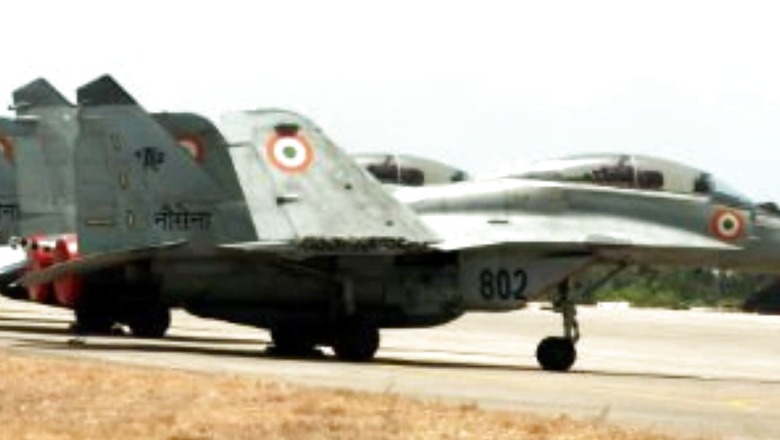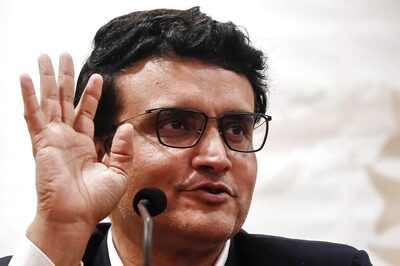
views
The Russia-Ukraine war could impact spares supply and after-sales support for key Russian-origin equipment and platforms such as T-90 tanks, BMP 2 and MiG-29K fighter jets, which form the mainstay of the Indian Armed Forces, even as big-ticket capital procurements, including Very Short Range Air Defence (VSHORAD) systems and Ka-226T utility helicopters, will be stalled for now, News18 has learnt.
Highly-placed defence sources told News18 that the Indian defence establishment is concerned about the delay in supply of spares for weapon systems in the long term and other maintenance measures needed to keep the equipment with the Army, Navy and Indian Air Force (IAF) running and is exploring options to arrive at a solution.
“Much of the planned capital procurements such as the Ka-226T utility helicopters were anyway put to the backseat after the government’s directive on indigenisation and stopping import of defence equipment in December last year,” a senior government official said.
According to the official, that is the reason the VSHORAD systems deal, despite being in the final stages, was not concluded when Russian President Vladimir Putin had visited India on December 6 last year.
“But what is of concern is the supply of spares for upgrade of several platforms such as T-90 tanks and MiG-29 K fighters could be hit in the long term because of the conflict,” the official added.
The official, however, further said India has some of these Russian spares in its stock for immediate future requirements.
“For those which are not available, the government will find out a way through diplomatic channels or other routes,” the official added.
According to sources, it is unlikely that the deliveries for $5.43 billion S-400 ‘Triumf’ missile systems will be affected since they are scheduled deliveries and the production lines would have already been planned. The deal was signed in 2018, even as the United States in August 2017 had passed the Countering America’s Adversaries Through Sanctions Act (CAATSA).
“It won’t be affected in the near future, at least the next couple of deliveries,” an official said.
Impact on Other Projects
Around 60% of India’s military hardware is Russian-origin. This includes equipment and weapon systems, which have been delivered and inducted in the Indian military, and others which are still in the process of getting delivered.
Much of the milestone payments are pending for several contracts with Russian entities and this is likely to be further delayed with Russia facing strict economic sanctions from the west.
Sources told News18 that the defence establishment has narrowed down on some of the equipment and weapon systems, which could face a delay in the delivery of spares and issues in maintenance support from Russia in the immediate future. This includes the Mi-17 V5 choppers, the Su-30 MKI fighters and the RD-33 engines of MiG-29 jets for the IAF and its naval variant MiG-29 K fighters.
For the Navy, the Kolkata-class stealth guided missile destroyers, the Shivalik class multirole stealth frigates, the Brahmaputra class frigates, the Kora class corvettes, and deliveries of two Talwar-class frigates by Russia are among platforms which could be impacted. The frigates, which were to be delivered to the Indian Navy by next year, were to be fitted with engines manufactured by Ukraine.
For the Army, anti-tank ammunition manufactured under Project Mango is likely to be affected. Additionally, the upgrade of its licence-built BMP-2 amphibious infantry combat vehicles, the modern T-90 tanks in the Army’s inventory may be impacted due to the conflict.
A second senior defence official said the defence establishment is exploring ways to make the scheduled milestone payments to Russian firms for the deliveries already completed.
Much of India’s immediate operational plans are based on the contracts with Russia on upgradation of these equipment and long term maintenance.
At a recent press briefing, Russian Ambassador-designate Denis Alipov said the ongoing conflict and the western sanctions will not impact the deliveries of critical defence equipment to India as alternate mechanisms are in place as a counter to the restrictions.
Commander KP Sanjeev Kumar (Retd), former naval aviator and an experimental test pilot, told News18 that the present circumstances and the bind the Indian defence establishment is finding itself in, reflects India’s dependency on a host of Eastern-origin defence hardware that was already strained for logistic support after break-up of erstwhile USSR.
“Our inability to wean away from imports, particularly relying on the ‘look back, march forward’ philosophy in sticking to low-cost of initial acquisition, and ensuring commonality of equipment has brought us to a difficult pass,” he said.
“Robust as they come, maintainability and availability of Eastern bloc hardware has always posed challenges. It may now plummet to a precarious position. The countries at war will obviously accord top priority to their own fleets already under severe strain of a war nobody clearly was prepared for,” he said.
The former naval officer added that the deep repair and servicing facilities of Indian armed forces will have to dig deep into their decades-long experience and find local solutions through innovation and private sector participation and the “honeymoon and luxury of procrastination is over, if ever there was one.”
“As a former Kamov pilot, I worry for the future of the Navy’s modest fleet of yet to arrive upgraded KV-28s, the MiG29Ks, and the supportability of IAF’s large fleet of Medium Lift Helicopters (MLH). I am sure other arms will have their concerns,” he said.
“Striking a balance between Atmanirbharta and deriving the best out of global value chains to keep our interests safe is the only way forward,” he said. He also pointed out that the “sloganeering around total indigenisation is misleading and distracting. There is no such thing. Balance is key.”
Read all the Latest News India and Breaking News here


















Comments
0 comment